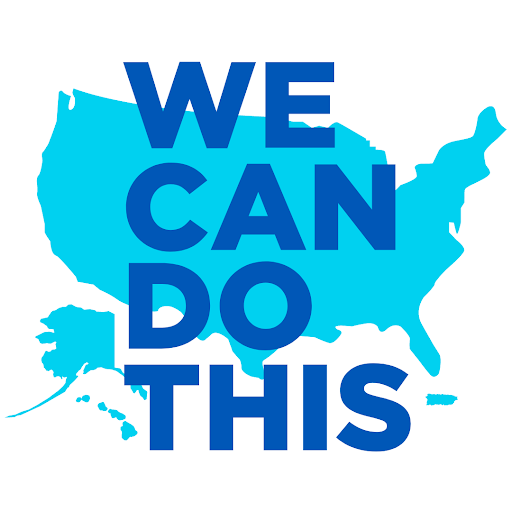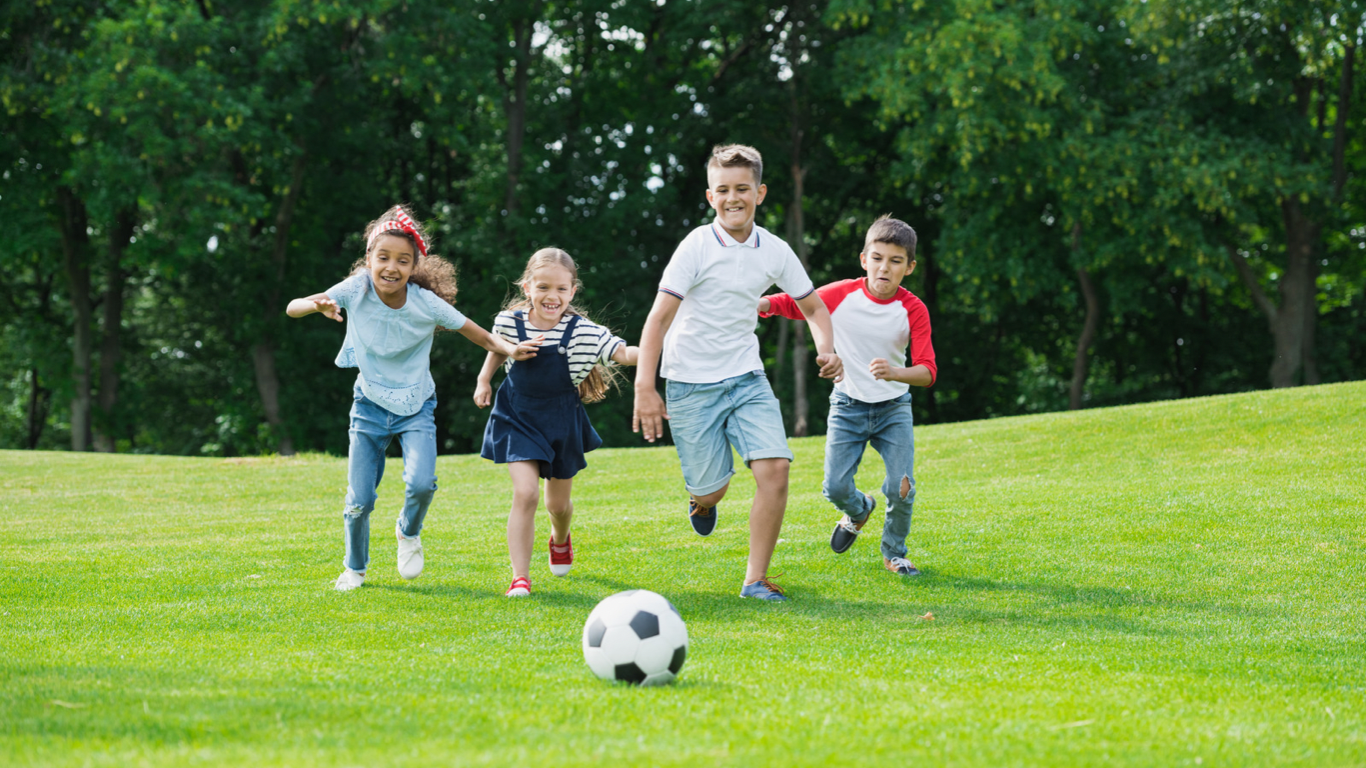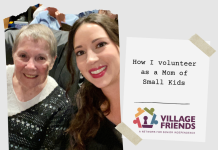The U.S. Department of Health and Human Services (HHS) has made a commitment to informing parents to increase public confidence in COVID vaccines while reinforcing basic prevention measures such as mask wearing and social distancing to allow them to make informed decisions about their health and COVID, including steps to protect themselves, their children, and their communities.
 In December 2020, FDA authorized a COVID vaccine for children ages 16-17. In May 2021, FDA authorized it for children ages 12-15, followed by an authorization for children ages 5-11 in November 2021. We are seeking to inform and motivate parents of children ages 5-17 to get their children vaccinated to help keep children from getting seriously sick and to have a significant impact on overall COVID infection rates in the U.S.
In December 2020, FDA authorized a COVID vaccine for children ages 16-17. In May 2021, FDA authorized it for children ages 12-15, followed by an authorization for children ages 5-11 in November 2021. We are seeking to inform and motivate parents of children ages 5-17 to get their children vaccinated to help keep children from getting seriously sick and to have a significant impact on overall COVID infection rates in the U.S.
I HAVE TO EVALUATE MY TRUE MOTIVES FOR WHAT I DO AND THEN BE STRONG ENOUGH TO DO WHATEVER I NEED TO REGARDLESS OF WHAT OTHERS SAY OR DO. AND I HAVE TO ALLOW OTHERS THE SAME FREEDOM TO DO WHAT THEY CHOOSE, WHILE HAVING A LOVING ATTITUDE TOWARD THEM, INCLUDING NO HARD FEELINGS OR UNKIND REMARKS.
COVID Vaccines: Getting Our Children Vaccinated
Everyone in the United States age 5 or older is now eligible to get vaccinated.
COVID vaccines do provide an opportunity to return to a more normal lifestyle.
- Getting vaccinated is the best way to protect our families and make life safer for everyone.
- But here’s the thing: If you are not vaccinated—no matter your age—you are at risk of getting sick, and yes, even dying.
- You should also continue to wear a mask indoors to protect yourself and other people.
The vaccines do work.
- COVID vaccines help prevent severe illness and death from COVID.
- Children are four times more likely to be hospitalized from COVID if they live in a state with low vaccination rates compared to states with high vaccination rates.
- Vaccines can help protect your child from getting COVID and help keep your child from getting seriously sick even if they do get it.
Safety is a top priority.
- Millions of people have safely received COVID vaccines under the most rigorous safety monitoring in U.S. history.
- COVID vaccines are the most closely monitored vaccines in U.S. history and are being monitored just as closely in children.
Short-term side effects from the vaccine are normal and typically last for a couple days after vaccination.
- Children who’ve gotten a COVID vaccine have the same temporary side effects as adults. They are signs that the vaccine is working and that your child’s body is building protection against the virus.
- Common side effects include:
- Pain, redness, or swelling where you got your shot
- Tiredness
- Headache
- Muscle pain
- Chills
- Fever
- Nausea
Getting vaccinated has never been easier or more convenient.
- Everyone in the United States age 5 or older is eligible to get vaccinated.
- Vaccines are free regardless of health insurance or immigration status.
- Vaccines for kids are now available at more than 30,000 trusted and convenient locations. To find vaccines near you, visit vaccines.gov; text your ZIP code to 438829 (GETVAX); or call 1-800-232-0233.
- Check with your child’s pediatrician or their school for vaccine availability. Many schools and health care providers are offering vaccines to make it easier for children to get vaccinated.
- Community health centers and rural health clinics across the country will provide vaccines for kids, and children’s hospitals and health systems are partnering with local communities and faith-based organizations to create vaccination sites, including many open in off hours for working parents.
COVID is a greater threat to your child than any potential risk from side effects of the vaccine.
- There is no way to know how COVID will affect your child, but clinical trials showed vaccines help prevent severe illness and death from COVID.
- Since August, 1 in 5 new COVID cases have been in kids. , but vaccines can bring that number down.
What should I do as a parent?
Want more information about the benefits of getting vaccinated? Ask a doctor, pharmacist, or other health care provider.
- Talk to a doctor. We encourage you to talk to your child’s health care provider about any other questions you may have about COVID vaccines. The American Medical Association reports over 96% of doctors have been fully vaccinated against COVID.
- Research for yourself at cdc.gov/coronavirus for more information.
- Help the people you care about find a vaccine at vaccines.gov.

Frequently Asked COVID Questions:
- Can a COVID vaccine make my child sick with COVID? None of the authorized and recommended COVID vaccines contain the live virus that causes COVID. This means that a COVID vaccine cannot give your child COVID.
- Will a COVID vaccine alter my child’s DNA? No. COVID vaccines do not change or interact with your child’s DNA in any way. It is biologically impossible.
- Do COVID vaccines affect fertility? No, they do not. If you are trying to become pregnant now or want to get pregnant in the future, CDC recommends getting a COVID vaccine. Currently, no evidence indicates that any vaccines, including COVID vaccines, cause fertility problems, in women or men. If you are trying to become pregnant, then you do not need to avoid pregnancy after receiving a COVID vaccine. In a recent study, people who had gotten a COVID vaccine had the same pregnancy success rate as people who had not been vaccinated. Vaccines are carefully studied and monitored, and it is clear they are safe for people who are pregnant or who want to become pregnant.
- Are the vaccines safe for women who are currently pregnant or breastfeeding? Yes, COVID vaccines are recommended for people who are pregnant, breastfeeding, trying to get pregnant, or might become pregnant in the future. In fact, pregnant and recently pregnant people are more likely to get severely ill with COVID and getting a COVID vaccine can help protect them from severe illness from COVID. CDC tracks all vaccines for safety and the evidence to date shows that the vaccines are safe for pregnant women. Pregnant women seem to have the same side effects as everyone else, and we haven’t seen evidence of miscarriages, stillbirths, or preterm births linked to COVID vaccines. Recent reports have shown that breastfeeding parents who have received mRNA COVID vaccines have antibodies in their breastmilk, which could help protect their babies.
- What should parents of adolescents know about myocarditis related to COVID vaccines? A very small number of cases of myocarditis (inflammation of the heart muscle) and pericarditis (inflammation of the outer lining of the heart) have been reported following COVID vaccination. However, this is extremely rare, and adolescent patients typically recover quickly and respond well to medications and rest.
- Quotes are excerpts from “With Great Power Comes Great Responsibility” by Beverly Smith, AO Moms Founding Contributor. Click here to read more.











